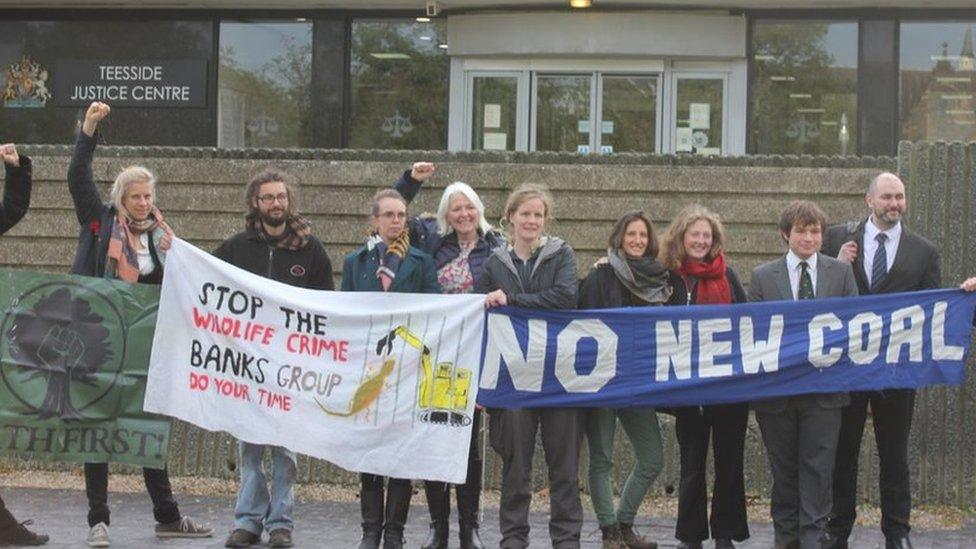Extinction Rebellion protesters block Bradley mine site
- Published
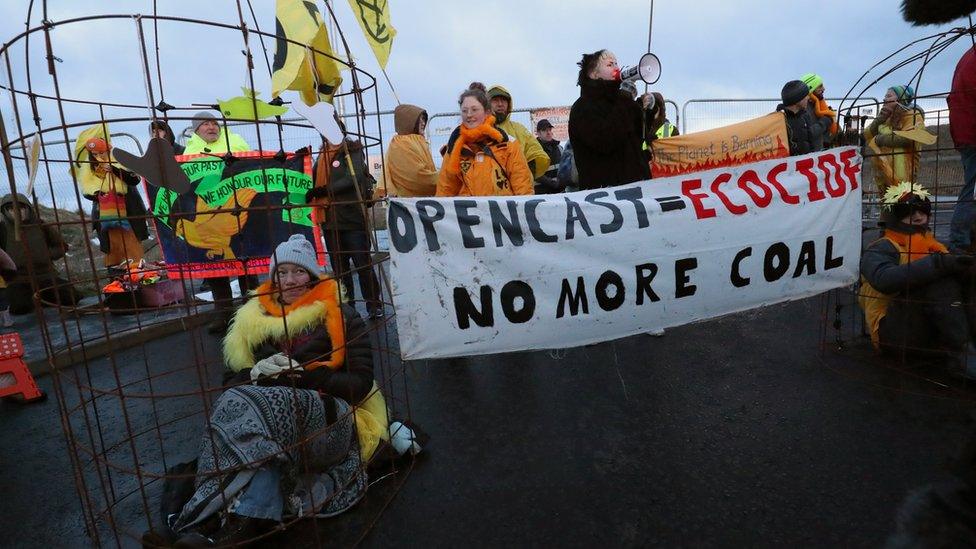
About 50 protesters went to the site from early morning
Extinction Rebellion (XR) activists caged themselves like canaries to block the entrance to an open-cast coalmine in opposition to plans to expand it.
One protester tried to get under a barrier at the Banks Group's site at Bradley near Dipton, County Durham.
Durham County Council has received more than 5,500 objections, external to the plan, many on environmental grounds.
The Banks Group said the protesters were "ill-informed" and "exacerbating the problem they are looking to solve".
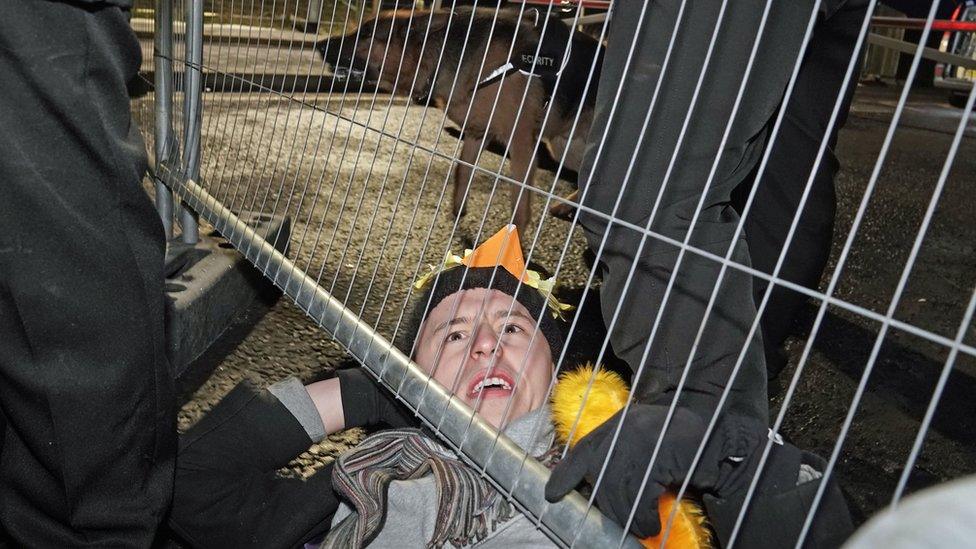
One protester tried to climb under a fence but got stopped by security guards
The firm has applied for planning permission to extend the mine to extract a further 90,000 tonnes of coal and 20,000 tonnes of fire clay.
About 50 protesters have gone to the site on the first of three days of planned action at the mine.
Four of them are dressed as canaries, whose large wire cages are blocking the mine's entrance, as campaigners chanted "we are non-violent".
One, who did not want to be named, said: "If things got unsustainable for life underground the canaries down the mine used to peg it before the miners did.
"Here we are, trying to stop the coalmine because there's no need for coal."
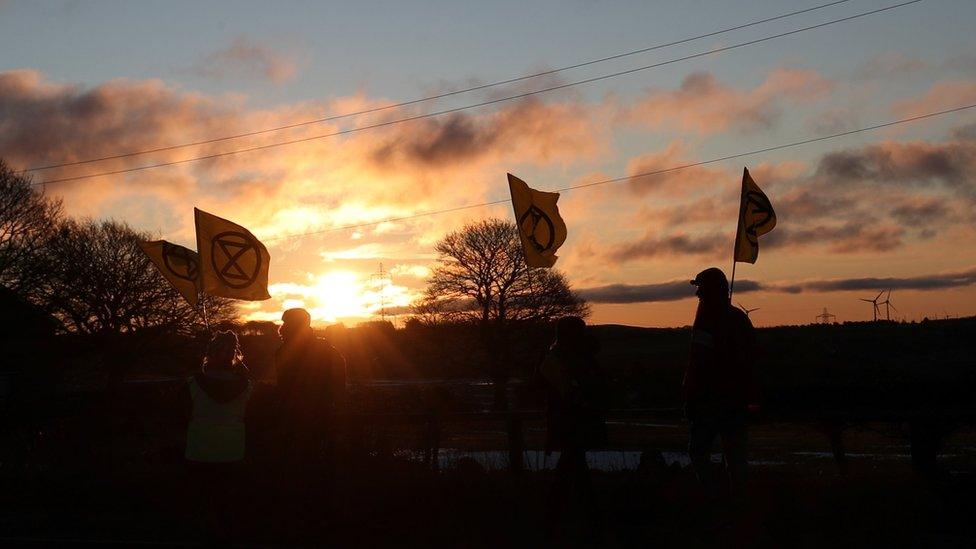
Banks wants to expand its operation at Bradley
The campaigners said that extending the mining operation went against the commitment to phase out coal by 2025 and to become carbon-neutral by 2050.
Mark Dowdall, from the Banks Group, said the firm had invested "hundreds of millions of pounds" in green energy such as wind farms, but coal is still needed until "viable alternatives are in place"
"XR's ill-conceived demands will directly exacerbate the problem they are looking to solve," Mr Dowdall said.
Such protests would result in the need to import more coal from abroad, which Mr Dowdall questioned the "environmental sense" of.
He said: "The privileged, ill-informed XR protesters, most of whom are once again from outside the area and who are causing more disturbance to local residents than our operations ever have, would be more effective protesting against imports of Russian, American and Australian coal rather than counter-productively threatening much-needed regional investment and the livelihoods of hard-working northern families."
Durham Police is monitoring the protest and has warned drivers the A692 could be affected.
Plans for the mine were first approved in 2015 and extraction of coal began in May 2018.

Follow BBC North East & Cumbria on Twitter, external, Facebook, external and Instagram, external. Send your story ideas to northeastandcumbria@bbc.co.uk, external.
- Published15 May 2019
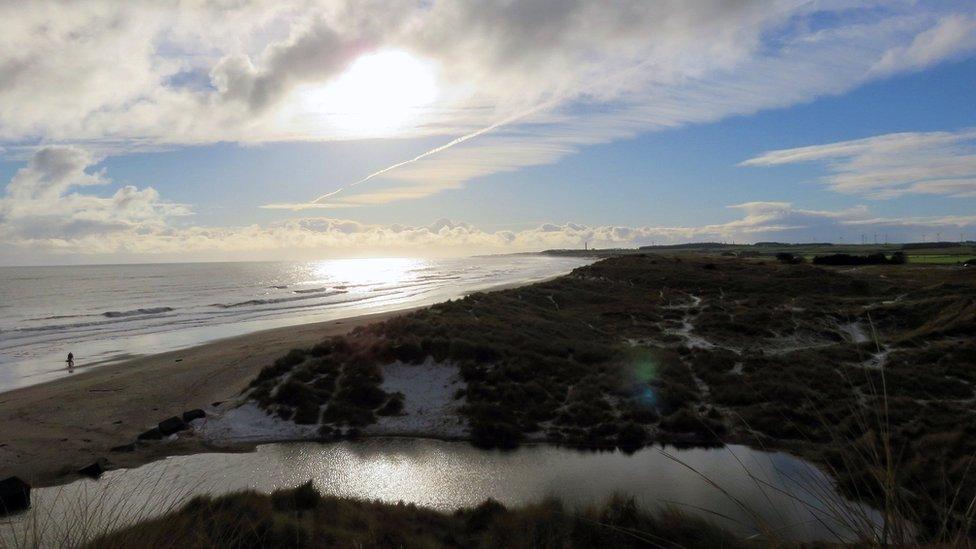
- Published26 February 2019
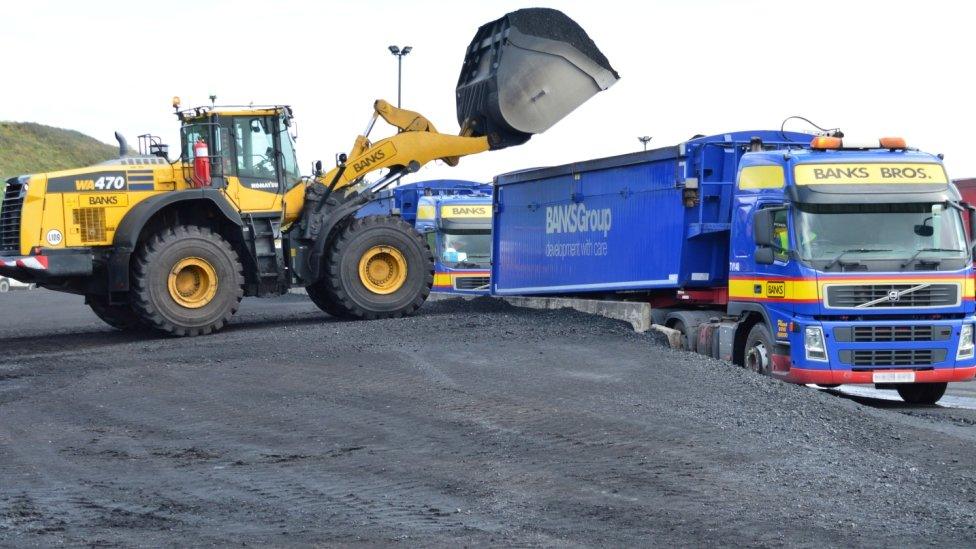
- Published17 January 2019
